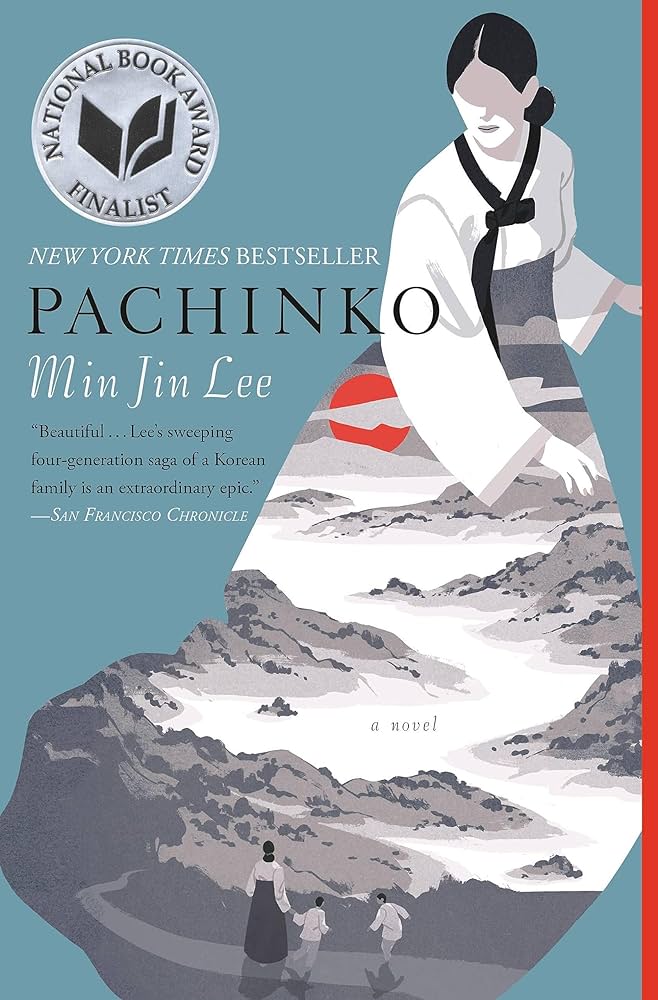“Learn everything. Fill your mind with knowledge—it’s the only kind of power no one can take away from you.”

Title: Pachinko
Author: Min Jin Lee
Rating: 4/5 Stars
Link to book: Pachinko
This was one of the best generational epic’s I read. Well, it did get adapted into a Korean TV series which I have not watched. Set against the backdrop of 20th-century Korea and Japan, this epic novel follows the lives of four generations of a Korean family. The novel navigates the complex intersections of identity, love, and survival.
The narrative begins in the early 20th century with Sunja, a young woman living in a small Korean village. Following a secret rendezvous, her life takes an unexpected turn when she becomes pregnant by a handsome wealthy man. What follows is a gripping saga that traces the lives of Sunja’s descendants as they grapple with the consequences of their choices and the ever-shifting tides of history.
Compared to other generational epics, the novel had less characters which for me was way easier to follow. And also with different names! Yes, One Hundred Years of Solitude, I am looking at you. Lee meticulously crafts her characters, and their struggles and triumphs painting a vivid picture of the challenges faced by immigrants and marginalized communities. At the start, I felt that the characters were very well-written and developed. You could understand why they did what they did. However, towards the second half of the book some parts felt a bit rushed. For me, there was not enough explanation for why some characters behaved in some ways. Of course, there is a fine line between leaving something to the reader’s imagination for artistic purposes and just being lazy to not write it.
The novel also sheds light on the pervasive discrimination and prejudice faced by the Korean community in Japan. This sheds light on the complexities of identity, belonging, and the enduring impact of historical injustices. The novel also accurately expresses what it feels like to be an immigrant, not really being accepted into either communities at home or abroad. Not really belonging anywhere.
“Living everyday in the presence of those who refuse to acknowledge your humanity takes great courage.”
There was an educational aspect of the book for me learning about these events in Korea and Japan. Lee brings to life the intricacies of pachinko parlors, the Korean immigrant experience, and the historical events that shape the characters’ destinies. What was really interesting to me was learning about North Korea and how it was before it became North Korea. Today, if you had to choose, most people would choose to live in South Korea instead of North Korea. However, at that point in time, it wasn’t clear which side would provide a better life.
The prose in Pachinko is elegant and evocative, capturing the nuances of human emotions and the subtleties of cultural landscapes. The author’s storytelling prowess creates an immersive experience, drawing readers into the intimate moments of joy, sorrow, and resilience that define the characters’ lives.
All in all, Pachinko is an epic journey that spans decades, offering a panoramic view of the human condition. Lee’s ability to weave together a multigenerational narrative with such grace and poignancy makes this novel a standout work of literary fiction.